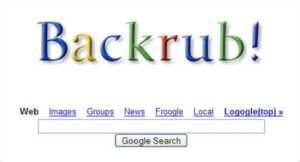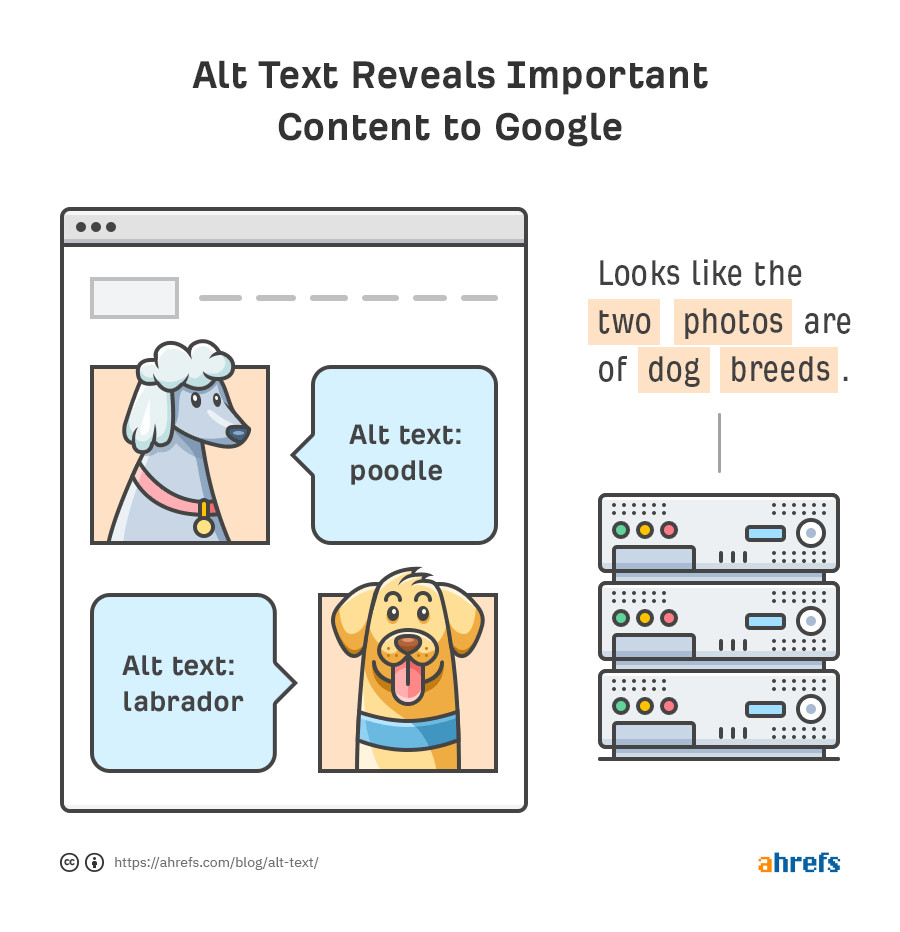
- The Google search optimization feature is manipulated by businesses trying to get their websites seen first.
- New research shows that SEO means search results are dominated by badly-written spam.
- Gen AI is extremely good at the SEO game – which is not set up to consider the wider content ecosystem.
Is Google facing a decline? The search engine giant thats name has become a verb synonymous with research is increasingly overrun with low-quality SEO spam, according to a German study.
Tracking search results for 7,392 product review terms across Google, Bing and DuckDuckGo over one year, researchers from Leipzig University, Bauhaus Universität Weimer and the Center for Scalable Data Analytics and Artificial Intelligence (ScaDS AI) found that search results have been taken over by low quality, trashy SEO content.
Much of that content seems to be at least assisted by AI, if not completely generated by it.
“We find that the majority of high-ranking product reviews in the result pages of commercial search engines use affiliate marketing, and significant amounts are outright SEO product review spam,” the report, titled Is Google Getting Worse? A Longitudinal Investigation of SEO Spam in Search Engines, notes.
“We also find strong correlations between search engine rankings and affiliate marketing, as well as a trend toward simplified, repetitive, and potentially AI-generated content.”
The birth of Google search optimization
In 2023, Google turned 25 years old. At its inception, Google promised to organize the world’s information. Now, it seems that the world’s information is organized for Google, and the world of internet information has become easier for robots to use than the humans it was built for.

Google started at Standford as Backrub! Source: www.exchange4media.com
“Google is the most meaningful source of traffic on the web, and so now the web looks more like a structured database for search instead of anything made for actual people,” the study explains.
In 2000, Google’s ad company, Google AdWords (which now operates simply as Google Ads), launched, enabling companies to bid on clicks per advert – which would appear to the right of, and distinct from, search results.
Higher bids meant ads would be shown higher on the page. Then, in 2002, Google made the ingenious move to base ad position on a score that factored in the price paid by advertizers as well as relevancy. This development meant that Google users came to trust the top few results most, something that had never been done before in the world of advertizing.
Google search optimization became the hottest way to get your company noticed.
And haven’t we all chosen to cite a source that appeared third in search results – after Wikipedia, of course – over the one placed in sixth or lower? How many times have you clicked through to the second page of Google search results?
That trust in what Google has placed highest in its results and the way that influenced how we find information and resources has been developed over the years and stoked the fire of the search engine optimization (SEO) industry.
The SEO industry remains a mystery to most of the population, considered the business of industry publications and marketing firms; users don’t get an explanation for the order in which search results appear.
Conversely, most people are at least somewhat aware of engagement hacks on social media sites, things like adding a trending hashtag to an Instagram post or, more recently, using a TikTok sound with high engagement.
In the same way that viral posts are achieved, businesses employ SEO experts (who often refer to themselves as SEOs – a descriptor intentionally similar to CEO?) to ‘game’ the Google algorithm and keep their name at the top of the page.
Many sites do what they think Google wants or what’s recommended by SEO experts, even without any guarantee it’ll work. In fact, Google’s guidelines on what works are intentionally vague: release a how-to guide and watch every website become a formulaic copy. Instead, to do better in search results, Google suggests you “make your site interesting and useful.”
In the void that creates, creators and website operators throw things at the wall to see what sticks. And once they start designing their page for Google, it’s easy for their content to be fashioned for Google, too.
So, what makes a site SEO-friendly?
Google uses its influence over the web to encourage objectively good results, prioritizing fast-loading sites and accessibility features. In some cases, of the features of SEO are mutually beneficial: describing an image with ALT text makes posts more accessible, but also helps Google optimize search results.

Alt text – Pictionary for the web.
Google’s Core Web Vitals Metric pushes down sites with certain kinds of intrusive ads or slow-loading ones that move the content of the page around. Google might not like your site if it has huge logos and custom fonts. That’s why businesses like Mediavine, a popular ad management company, released web design frameworks optimized for this new Google search optimization metric.
It’s also what gave birth to the homogenized internet we know now.
Most businesses use SEO bots to identify what changes need to be made to a site to improve its ranking among search results. They also grade readability – or a formulaic idea of what readability is – encouraging paragraphs to be shorter than six sentences in length, replacing complex words with their simplest synonym, and reducing punction to its most basic.
In short, to the bots making these recommendations, readability means how easily information can be taken from a piece of text; it doesn’t account for the human process of reading, rather the speed at which another bot might gather information. It reads like a bulleted list of points.
If all sites use the same plug-ins, they’ll get the same suggestions and all online content will be very similar and very, very boring.
Of course, Google isn’t directly asking for this to happen. Its ranking metrics just make it an inevitably as competition for readership mounts.
By 2023, many were unhappy with the way information was delivered online. Until the study’s results were published, much of this discontent – and a sense that something non-human was deciding what we wanted to see – was anecdotal.
Many blame Google. The all-seeing, all-powerful, trillion-dollar corporation with a 90% market share for online search has too much power to dictate what’s relevant, and relies too heavily on automation and, increasingly, AI.
However, SEO was a “thing” before Google was. Daron Babin’s SEO career got going in 1994: “The air of manipulation was insane,” he told The Verge.
“We had this weird community of geeks and nerds, and we all talked to each other about how we were beating the algorithms up,” he said. “People were trying to outrank other people just for bragging rights.”
This most recent study found that overall – on Bing and DuckDuckGo, too – “higher ranked pages are on average more optimized, more monetized with affiliate marketing, and they show signs of lower text quality … we find that only a small portion of product reviews on the web uses affiliate marketing, but the majority of all search results do.”
“SEO is a constant battle and we see repeated patterns of review spam entering and leaving the results as search engines and SEO engineers take turns adjusting their parameters.” All three of the search engines monitored regularly tweak their algorithms and take down outright spam, but this only has a “temporary positive effect.”
Spam sites regularly find ways to game the system, rise to the top of Google’s ranking and then get knocked down.
In fact, this isn’t the first time SEO has reached a breaking point. In 2003, In the run up to Google disclosing pertinent business information as part of its IPO, the company released an update cracking down on loopholes in the algorithm that enabled SEO businesses to take advantage. By 2011, SEO had once again reached a pervasive level.
TechCrunch published a story called “Why We Desperately Need a New (and Better) Google,” which argued that “Google has become a jungle: a tropical paradise for spammers and marketers.” In the next year, Google made two major changes to the algorithm, which came to be called Panda and Penguin.
Just over a decade later, researchers say “search engines seem to lose the cat-and-mouse game that is SEO spam.” It’s worth noting that Google, Bing, and DuckDuckGo all have the same problems, and in many cases, Google performed better than Bing and DuckDuckGo by the researchers’ measures.
A Google spokesperson told 404 Media that “This particular study looked narrowly at product review content, and it doesn’t reflect the overall quality and helpfulness of Search for the billions of queries we see every day. We’ve launched specific improvements to address these issues – and the study itself points out that Google has improved over the past year and is performing better than other search engines. More broadly, numerous third parties have measured search engine results for other types of queries and found Google to be of significantly higher quality than the rest.”
But the paper isn’t the first time the whistle’s been blown on the impact of Google search optimization. A few months ago, The Verge ran an investigation that concluded that SEO is to blame for ruining the internet.
What’s different now, compared to 2011 and 2003, is the widespread use of generative AI. Ah, once again heralded as a harbinger of doom, researchers warn that AI-generated spam will only worsen the rankings war.
“The line between benign content and spam in the form of content and link farms becomes increasingly blurry—a situation that will surely worsen in the wake of generative AI. We conclude that dynamic adversarial spam in the form of low-quality, mass-produced commercial content deserves more attention.”
And the SEO industry’s most dominant companies either already use or intend to use generative AI to further optimize content. Human articles written to score highly on SEO graders already feel formulaic enough; AI generation will step up to prove that yes, it can get worse! The point about how artificial intelligence can make things worse has been well understood since at least the dystopian science-fiction movies of the 1980s. If you give an AI a game with goals and rules, it will play the game better than most of the humans who think they know how the game works, whether that game is SEO, Tic Tac Toe, tumor prediction or global thermonuclear war.
The ways in which generative AI “makes the internet worse” are actually symptoms of the AI technology “winning” from the point of view of the people who deploy it – without any responsibility for the quality of the overarching ecosystem in which they’re winning.
“Reportedly, a torrent of low-quality content, especially for product search, keeps drowning any kind of useful information in search results,” the styudy observes, without rekoning the importance of clicks to particular links, or sellable eyes on particular content – the economic underpinnings of the whole SEO industry.
The study notes an “inverse relationship between affiliate marketing use and complexity,” finding that “SEO may hurt at least subjective page quality.”
Whether this heralds the end of Google’s dominion or just changes the internet as we know it, something’s going to have to give. Google’s ability to transform itself, though, suggests that the end isn’t yet nigh.
This ad for Chrome was written up by the Guardian in 2009, questioning its chances of success because it “does not mention the fact that it is advertising a web browser and only displays the Google logo at the very end.” Hard to imagine a time when the Chrome icon was widely unknown.









